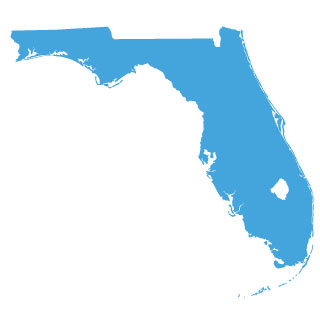
Organizations representing Florida assisted living and nursing home operators cheered Friday’s decision by the state’s Division of Administrative Hearings that invalidated two emergency rules put in motion Sept. 16 by Gov. Rick Scott.
The rules had given them 60 days to obtain generators and enough fuel to enable them “to sustain operations and maintain comfortable temperatures” for at least 96 hours following a power outage. Administrative Law Judge Gar W. Chisenhall wrote in his opinion, however, that the rules “are invalid exercises of delegated legislative authority.” Scott’s office said he will appeal the decision.
“We think the ruling clearly confirms that the rule wasn’t particularly well-constructed and that the timelines it imposed were unrealistic, especially with so many variables and factors that were outside the control of nursing homes and assisted living facilities,” LeadingAge Florida President and CEO Steve Bahmer told McKnight’s Senior Living.
The governor directed the Florida Department of Elder Affairs to issue the assisted living rule and the state Agency for Health Care Administration to issue the one for nursing homes following the deaths of eight residents of a rehabilitation facility who died after a power outage related to Hurricane Irma knocked out the facility’s air conditioning. Since then, six additional residents of the facility have died.
LeadingAge Florida filed its challenge to the rule with the DOAH on Sept. 26. The Florida Assisted Living Association and Florida Argentum filed their challenges Sept. 27 and Sept. 29, respectively, and the challenges subsequently were consolidated by the DOAH. Hearings were held Oct. 12 and 13.
The groups previously expressed support for the rules’ ultimate goal but not the timeline. Some of the associations raised additional concerns. Hundreds of providers already had filed variance requests.
The Florida Health Care Association was not involved in the challenge to the rule, previously saying instead that it would work with the legislature and the administration on solutions related to provider emergency power plans. Bahmer and leaders of other Florida provider associations also said they are working with legislators as well as with the state agencies, which have initiated standard rule-making processes related to the issue.
“So far, the bills are focused on ensuring sufficient backup power to keep buildings cool,” Bahmer said. “Some of the bills say a portion of the building, some of the bills say the entire building. Some say for 96 hours. There’s one out there that says for 120 hours. I think those are the big pieces that will get discussed in the legislative process.”
FALA CEO Shaddrick A. Haston, Esq., told McKnight’s Senior Living that his group is “happy that this issue is being taken up by the Florida legislature, where ideas and debate can flow. FALA does not oppose requiring assisted living facilities to have their buildings reasonably cooled. Our concerns have been with the short timelines, large amounts of fuel and whether there are less costly ways to comply.”
Florida Argentum told its members that the issue is “far from resolved.”
“We are actively working with members of the Florida legislature on sound public policy that will allow sufficient time for generators to be properly and safely installed,” the organization said. “We are also working to have assisted living facilities added to the priority list for power restoration after the storm.”
Assisted living operators previously have not been “lumped in” with nursing homes in requirements to install generators in their communities, according to Florida Argentum, “but we are impressed with how diligently our members have worked to comply with the requirements and the deadlines.”
The issue is being watched nationwide by assisted living operators. National Argentum President and CEO James Balda weighed in on the issue, too. “Our top priority is ensuring our residents’ safety every day,” he said, also reiterating some of the points made by Florida Argentum.
Friday’s DOAH ruling was a setback for Scott following the Oct. 19 ruling by a state appellate court that rejected a provider group challenge to the emergency rules. After the DOAH ruling, his office said it would not “let special interests get in the way of these life-saving measures.”
“It’s disappointing that DOAH issued a shortsighted ruling against protecting lives and elderly Floridians,” said the governor’s deputy communications director, McKinley Lewis. “This ruling is in stark contrast with the favorable ruling the First District Court of Appeal issued last week that affirmed these rules were justified by the emergency circumstances. We will file an immediate appeal to the First DCA.”



